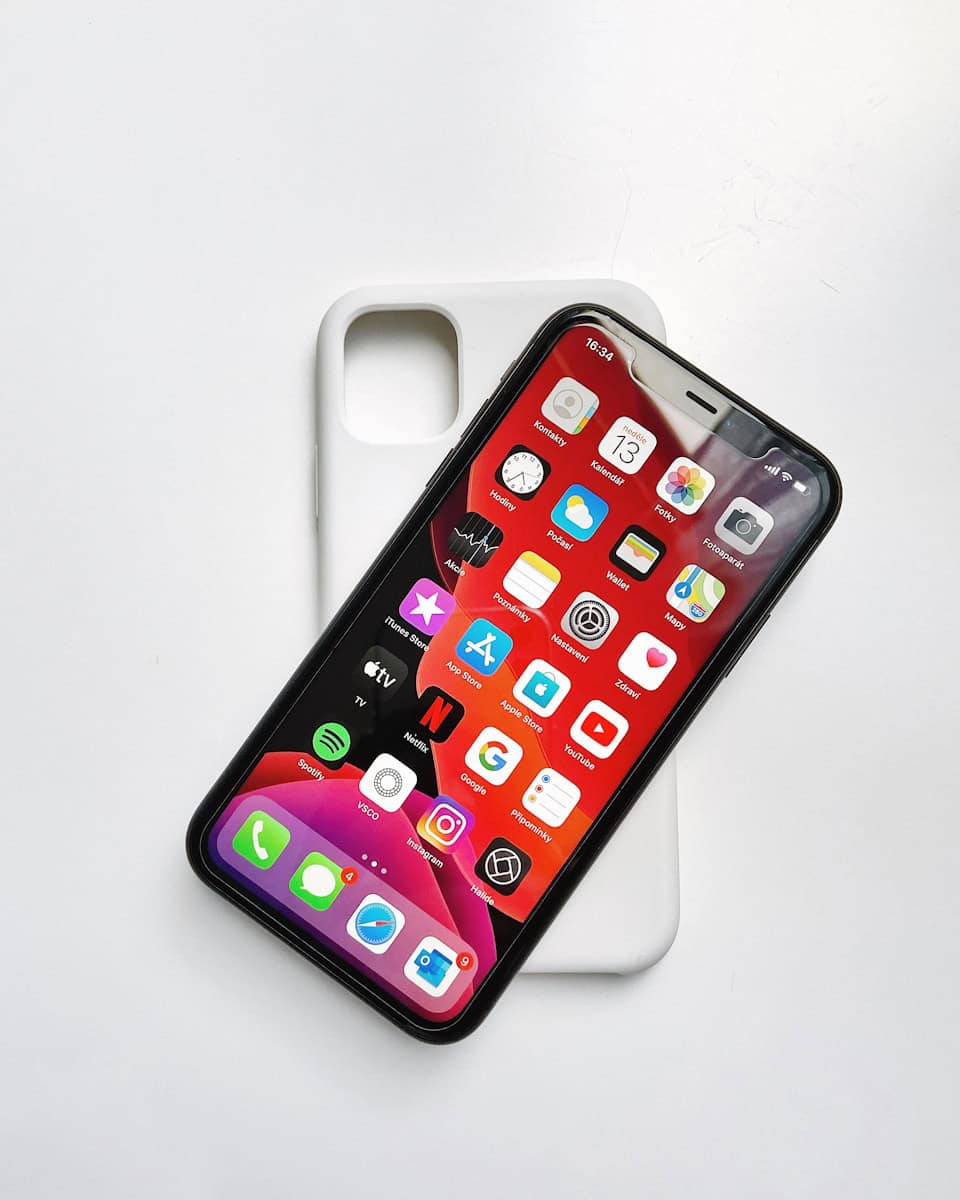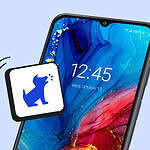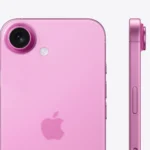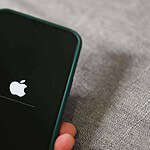The iPhone 11 was once Apple’s flagship smartphone, boasting powerful hardware that set benchmark standards. Several years have passed since its release, and the tech world has seen a myriad of advancements. Yet, the iPhone 11 still maintains a reputation as a reliable device. Its A13 Bionic chip ensures that it runs smoothly even when stacked against newer models. Apple’s continued support through iOS updates means the iPhone 11 remains a smart purchase for those seeking performance without the latest bells and whistles.
In terms of user experience, the iPhone 11 excels with a camera system that competes capably with newer releases. Despite the absence of 5G, its performance, combined with support for upcoming iOS updates, positions the iPhone 11 as a valuable contender in the current smartphone market. It caters to individuals who prioritize functionality and cost-efficiency over having the latest specifications.![Total by Verizon Apple iPhone 11, 64GB, Black- Prepaid Smartphone [Locked to Total by Verizon]](https://www.simplymac.com/wp-content/uploads/Total-by-Verizon-Apple-iPhone-11-64GB-Black-Prepaid-Smartphone-Locked-to-Total-by-Verizon_a2824d11-c00d-44cc-8ffd-dea3fadf7765.94a3253413b144e1c435840e5273bee6.jpg)
iPhone 11 in 2024: A Solid Budget Option with Some Trade-offs
The iPhone 11, released in 2019, remains a popular choice for those seeking a budget-friendly iPhone. But is it still worth buying in 2024? Let’s break it down.
Pros of Buying the iPhone 11 in 2024
The iPhone 11 boasts several features that make it a compelling option even in 2024:
- Still a Powerful Performer: The A13 Bionic chip may not be the latest, but it’s no slouch. It can handle everyday tasks, gaming, and multitasking with ease. You won’t notice much lag or slowdowns in most situations.
- Great Camera System: The dual-lens camera takes excellent photos and videos in various lighting conditions. While it lacks the advanced features of newer iPhones, it’s still more than capable for most users.
- Long Battery Life: The iPhone 11 offers impressive battery life, easily lasting a full day on a single charge with moderate use. You won’t be scrambling for a charger in the middle of the day.
- Affordable Price: Perhaps the biggest draw is its price. With newer models available, the iPhone 11 is significantly cheaper, making it an attractive option for budget-conscious shoppers.
Cons of Buying the iPhone 11 in 2024
It’s important to consider the downsides as well:
- No 5G Support: The iPhone 11 doesn’t support 5G networks, which are becoming increasingly prevalent. If 5G is important to you, this could be a dealbreaker.
- Older Design: The design, while still sleek, is starting to show its age. The bezels are thicker than newer models, and it lacks features like ProMotion and the Dynamic Island found in later iPhones.
- Limited Future Updates: Apple typically supports iPhones with software updates for around five to six years. The iPhone 11 might not receive the latest iOS updates for much longer.
Key Features of the iPhone 11
| Feature | Description |
|---|---|
| Display | 6.1-inch Liquid Retina HD LCD display |
| Processor | A13 Bionic chip |
| Camera | Dual 12MP wide and ultra-wide cameras |
| Battery | Up to 17 hours of video playback |
| Storage | 64GB, 128GB, or 256GB |
Who Should Buy the iPhone 11 in 2024?
The iPhone 11 is a good choice for:
- Budget-conscious buyers: If you want a capable iPhone without breaking the bank, the iPhone 11 is an excellent value.
- Casual users: If you mainly use your phone for calls, messaging, social media, and light gaming, the iPhone 11 can handle it all.
- Those who prioritize battery life: If you need a phone that can last all day, the iPhone 11 won’t disappoint.
Who Should Not Buy the iPhone 11 in 2024?
The iPhone 11 might not be the best fit for:
- Those who need 5G: If 5G connectivity is a must-have, look at newer iPhone models.
- Power users: If you demand the absolute best performance and the latest features, you’ll be better served by a newer iPhone.
- Those who want the latest design: If having the most modern design is important, newer iPhones have sleeker aesthetics.
Final Verdict
The iPhone 11 remains a solid and affordable option in 2024, especially for those who prioritize value and don’t need the latest bells and whistles. While it lacks some of the cutting-edge features found in newer models, it still delivers a great user experience with excellent performance, a capable camera, and impressive battery life. If it won’t cost you more, however, opt for an iPhone 12 or 13 to extend the life of your iOS updates out.
Key Takeaways
- The A13 chip in the iPhone 11 still performs well for current standards.
- Apple’s iOS updates keep the iPhone 11 relevant in the tech space.
- The iPhone 11 offers a balance of efficiency and value in today’s market.
Relevance and Performance in the Modern Smartphone Market
The iPhone 11’s staying power in the tech market hinges on its strong core features and ongoing software support. It navigates a sweet spot of value and performance, even as newer models appear on shelves.
Comparison with Newer Models
The iPhone 11 rides on the still potent A13 Bionic chip. It stands against the more recent A14 and A15 chips found in the iPhone 12 and 13 series, respectively. When we look at raw performance, the A13’s processing speed allows the phone to keep up with the basic and moderate demands of current apps and games. However, design and camera enhancements give the iPhone 12 and 13 a notable edge. Ram and other under-the-hood upgrades contribute to the smoother performance seen in these later models.
The iPhone 14 and upcoming iPhone 15 push boundaries further with anticipated performance boosts. They offer more advanced chips and features like improved camera systems. But when weighed against their high price tags, the iPhone 11 emerges as a budget-friendly option that still delivers the essentials effectively.
Sustained Support and Updates
Apple’s track record of providing long-term iOS updates ensures the iPhone 11 remains a future-proof investment. The phone currently runs on iOS 16 and is expected to receive support for upcoming versions like iOS 17. Timely software support keeps the device secure and functional with the latest features available. This consistent updating maintains the phone’s relevance and prolongs its usability in a quickly evolving market.
Those with an eye on cost will find that the iPhone 11’s lower price point offers substantial value for money. It presents a balanced package for budget-conscious consumers who need a capable device without breaking the bank.
Technical Specifications and User Experience
With the A13 Bionic chip at its core, the iPhone 11 boasts enduring performance and a camera system that competes admirably with newer models. Let’s unpack the specifics that contribute to its sustained relevance in the market.
Camera Capabilities and Innovations
The iPhone 11’s camera is a solid performer with dual rear cameras comprising wide and ultra-wide lenses. Night mode and Smart HDR bring out more detail in images, and Portrait mode creates a depth-of-field effect that puts the subject in sharp focus against a blurred background.
Display Quality and Interface
The iPhone 11 features a Liquid Retina LCD display, offering a resolution of 1792×828 pixels. The interface remains fluid and responsive, thanks in part to the A13 Bionic chip. Although it doesn’t support a high refresh rate, the display’s color accuracy and brightness are suitable for daily use.
Battery Life and Charging Options
Battery life on the iPhone 11 is robust, potentially surpassing a full day on a single charge depending on use. It supports Qi wireless charging and fast charging, with the latter requiring a separate adapter. The iPhone continues to rely on the Lightning connector for charging and data transfer.
Connectivity and Expansion
The iPhone 11 supports 4G LTE but lacks 5G connectivity, which may be a drawback for those looking for the fastest network speeds. It offers various storage options and is built with durability in mind. The device also retains Face ID for secure authentication, and it can be purchased unlocked or through a carrier. Bluetooth and Wi-Fi round out its connectivity features, ensuring compatibility with a wide range of devices and networks.







